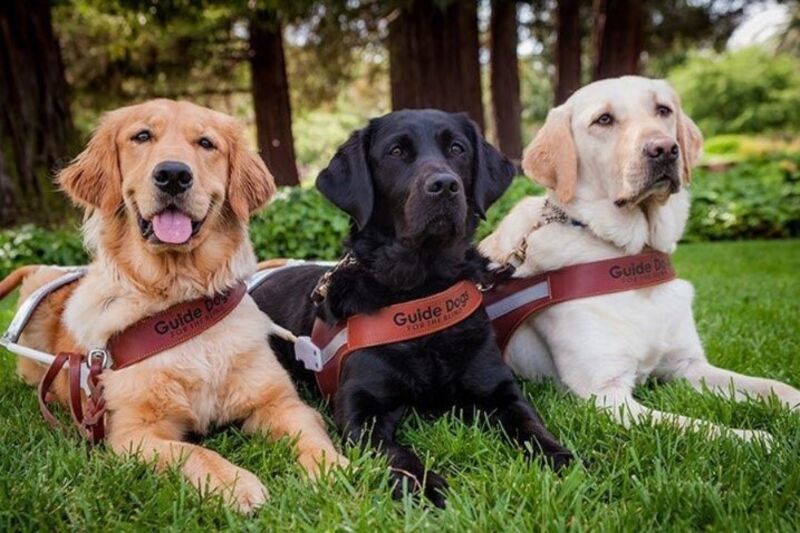
At the Rocky Mountain ADA Center, we often receive complaints regarding “fake” service animals being taken to places where pets are not allowed. Such as grocery stores, movie theaters, hotels, or restaurants. We are not an enforcement agency, and we do not believe the world needs “service dog police,” but rather, the current laws need to be taught and enforced in our communities.
One suggestion I frequently hear is to require service dog handlers to carry some form of ID, registration, or certification. Some people believe that would make the process of determining if a service dog is legitimate or not simpler and easier for everyone. I’d like to explore what that suggestion would look like. We will put aside for a moment the ethical question of utilizing such a system – students of history will protest that it is a dangerous situation when governments compile personal information on protected groups and require them to identify themselves or “show their papers”. We know this is the antithesis of a free and just society, so lets instead delve into the bureaucratic logistics of such a requirement.
Our Experiment
To begin our thought experiment, we can assume a government agency would be responsible for issuing a certification document.
- How would individuals pay for this agency to perform this task?
- How much would testing cost?
- How would this agency justify a government fee to use lifesaving medical equipment when by law medical equipment is tax exempt? (source: https://www.irs.gov/newsroom/medical-device-excise-tax-frequently-asked-questions)
- What happens if individuals with limited or fixed incomes cannot afford the required fees?
- What information would be required on an ID tag?
- Would there be one national ID tag, or would each state come up with their own requirements?
Another important question: where would the testing facilities be located, and how many would be needed in any given state? The testing facilities would need to be accessible, which would either require funding to alter existing buildings, or building new facilities that meet the 2010 ADA Standards, ABA, and local and state building codes. There is also the matter of ensuring that individuals whose disability prevents them from driving have access to transportation to this facility.
More questions
- How would dogs (or miniature horses) be tested?
- What governing body would determine what goes on the test, how an animal is scored, and what is considered a passing score?
- What agency would certify the individuals performing the tests?
- At what age would a service animal be allowed to test, and how frequently would individuals need to renew their certification?
- For PTSD, seizure, or diabetic alert service animals, would the handler be required to have a panic attack, seizure, or diabetic episode to prove the animal’s ability to alert?
- How would you prevent people without disabilities from getting their animal certified?
- What penalties would be associated with failure to register a service animal, and who would enforce those penalties?
- We know it is possible for people to create fraudulent drivers’ licenses to purchase alcohol, so how would law enforcement prevent the use of fraudulent service animal IDs?
- What happens if an individual loses their ID, or if it is stolen?
- How would businesses be able to determine if an ID is real or counterfeit?
- What happens if the behavior of a service dog falls below what’s required in the test (for example, the dog has an accident or becomes aggressive)?
After all of this, does registration and certification sound like the easier solution?
After considering the logistics, it is easy to see how creating a registration system would not solve the problem of “fakers,” and would instead place additional burdens on people with disabilities. When it comes to civil rights, the goal is not to make life convenient for service providers and organizations - the goal is to ensure equal access to every individual, regardless of their identity or circumstance.
If you would like to learn more about the rights and responsibilities of individuals and businesses regarding service animals, you can contact us, or start your research here: